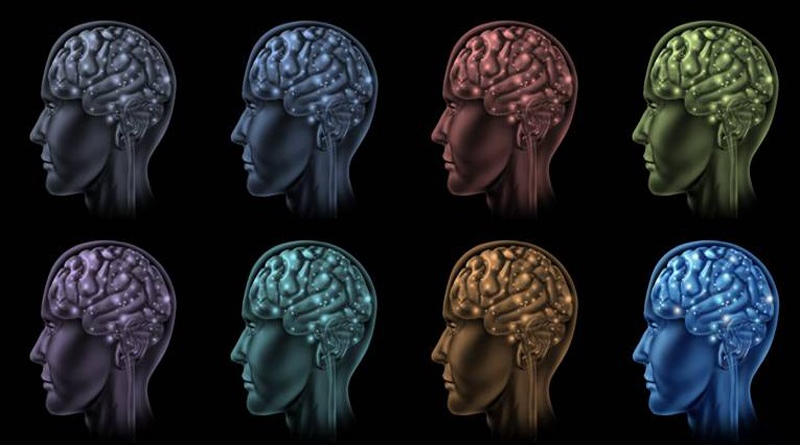
Understanding and Supporting Weaknesses in Executive Brain Functioning
By Cheryl Checkers, M.S.
An important part of successful transition to adulthood is strengthening executive functioning skills. Executive functioning skills emanate from the part of the brain that allows a person to manage daily tasks. The “conductor” or “control center” of the brain that helps a person manage these tasks takes place in the prefrontal cortex. These crucial skills do not come easily for everyone; sometimes they must be taught and/or supported. Many of these skills are difficult to generalize once they are taught, and practicing in the home and community environment can be extremely helpful.
As a counselor who specializes in working with individuals with neurodiversity, I frequently see clients in their late teens or in early adulthood with executive functioning weaknesses. It is not uncommon for me to see a client who never knew he/she had a problem with executive functioning skills until they went to college, or moved from the family home. Many parents are perplexed as to how their adult child functioned successfully while living at home, but had difficulty with simple tasks when they tried to live independently. I frequently hear “He/she did fine before now!” or “They were in Honors classes; how would they not have these skills?” However, oftentimes, unbeknownst to the parent, over time they have taken on the job of executive functioning for their child. It is not until their child must use these skills on their own, that parents realize they were supporting, or taking on, the skills for their child.
I have worked with many wonderful parents with the best intentions, and superb executive functioning skills, who had no idea they had been overcompensating for their child’s weaknesses. For example, parents may wake their child for school, rather than teach the child to get up on their own. They may tell their child when it is time to do homework, and then place the finished product in their child’s school bag. Parents may also bring breakfast to their child, make and pack their lunch, put out the clothes for them to wear, and make sure everything is in the school bag that will accompany their child to school. As I write this, I must confess that I, too, did these things for my daughter, until I realized she would need to do them on her own, to the best of her ability, someday. She was not going to learn without practice and generalization of what I call “life skills”. When children are young, it is part of what a parent does. However, what happens when the child becomes and teen or young adult? Why is it so important for them to have learned these skills?
I frequently hear “He/she did fine before now!” or “They were in Honors classes; how would they not have these skills?” However, oftentimes, unbeknownst to the parent, over time they have taken on the job of executive functioning for their child.
A common misperception is that executive functioning only includes organizational skills. Executive functioning is NOT just about organizational skills. While organization and planning are a big part of the picture, so is working memory, self-monitoring, initiation, emotional control, and the ability to shift from task to task. These skills are important for all individuals. Research has shown that executive functioning skills are associated with the prefrontal cortex of the brain. MRI and PET scans have been used to confirm that damage of the prefrontal cortex, or inadequate connectivity in the frontal lobe, can cause problems with executive functions. (Semendeferi K, Lu A, Schenker N, Damasio H, 2002).
While areas of weakness are different for every individual, and many people that struggle with these skills will never have a diagnosis, executive functioning deficits have been associated with several psychiatric and developmental disorders. The most common diagnoses include: attention deficit disorder – with or without hyperactivity; learning disabilities, depression, bipolar disorder, brain injuries, autism spectrum disorder, obsessive compulsive disorder, among others.
Executive dysfunction is often thought of as something that stems from laziness, or that a person “just doesn’t feel like doing what they are told to do”. It is important to understand and recognize when someone is struggling with executive functions. If they are struggling – they are not doing it because they are lazy. There is plenty of research to support executive dysfunction, and the need to help individuals who need help in this area.
Frontal Lobe functions (or “Executive Controls” as they are often referred to) influence the behavior that is exhibited by an individual. See chart below:
The importance of each component of executive functioning is critical not only for tasks that may seem simple, but also for higher level functioning.
Emotion Control skills include:
- Self-regulation and inhibition control
- Flexibility
- Modulating emotional responses
- Organizing thoughts and emotions
- Understanding how thoughts and emotions influence behavior
- Responding appropriately in different situations
Working Memory skills include:
- The ability to hold information in mind to complete a task
- The ability to store and manage information required to carry out a task associated with learning
- Reasoning and comprehension
- Monitoring tasks to work towards a goal
- The ability to encode, store and retrieve data
Task Initiation skills include:
- Motivation to initiate a task
- Problem solving
- Idea generation
- The ability to retrieve data from previous experiences, and relate it to a new task
Planning and organizational skills include:
- Managing current demands
- Managing tasks for future demands
- Thinking systematically
- Creating order
- Organizational skills in many different forms
Understanding executive functioning deficits is easier to do if a person with strong skills thinks of how often they use these skills during a typical day. What would your day look like if you had weak executive functioning skills? What if you were unable to get to work on time? Would you know which task to start first when you arrived at work? What if you could not manage your day to complete all your assigned tasks, or if you were unable to order tasks by level of importance? If you were in college, how would you organize assignments, homework and studying for tests if you had a full load of classes? What if no matter how hard you tried, you remained unsuccessful?
There is help for individuals who struggle with executive dysfunction, or weak executive functioning skills. While medications are sometimes needed, they are not a cure, nor do they have to be used in isolation. Building a “Tool Box” of strategies can help an individual increase their success with using the skills of executive functioning.
What can be done to help? Teaching executive function skills are most successful when they are taught with explicit instruction. It is essential to know the specific weaknesses of the individual when creating an individualized treatment plan. The treatment plan should be broken down into concrete steps, based the ability of the individual. Below are some strategies for each of the executive functioning components.
Weaknesses in Emotional Control and Regulation can be helped by providing:
- Strategies to help an individual understand how thoughts trigger emotion, and create behavior
- Individualized ways to help an individual manage emotions, and prepare for change
- Calming techniques
Working Memory deficits can be strengthened by:
- Teaching the individual to use graphic organizers
- Breaking down strategies into concrete steps
- Using planning tools
- Teaching how to write down directions for reference
- Developing routines
- Using visual reminders
- Teaching how to ask for concrete explanations when needed
Task initiation support can start with:
- Teaching the individual to order the importance of the tasks that must be accomplished
- Breaking down larger projects or goals into small manageable steps, such as assigning an increment of time that will be committed to working on each activity to prevent spending too much, or too little, time on an individual task
- Rewarding an individual, or teaching them how to reward themselves for small steps taken towards completing their goal can also be effective
Organization is threaded throughout these tips; however, there are more things that can be worked on:
- Teach the individual to always give themselves more time than they think they need. Create a list of what the individual does each day, beginning with what time they awaken, how long it takes them to eat breakfast, shower, dress, and leave the house. If these tasks take 45 minutes, have them allow 60 minutes for their morning routine. Understanding increments of time regarding daily functions can lower stress by preventing rushing to get tasks completed, and can allow the individual to get to class or a job on time.
- Providing strategies to prevent putting off tasks can be implemented
- Filing systems can be used
- Reminders can be utilized
- Calendar and phone reminder applications can be used
- Day planners are helpful
- A schedule of tasks, projects, deadlines and appointments can be utilized
Executive functions are needed to meet educational, career, and volunteer opportunities, make healthy food choices, to understand budgeting and medical/health conditions and medications, transportation needs, to participate in the community, and most of all, to reach the optimal level of independence. The good news is that skills of executive functioning can be strengthened, and many tools and support can help compensate for weaknesses. I have seen this with my own daughter, as well as the many clients that have allowed me to help them on their journey to independence.
References:
Dahl RE. Adolescent brain development: A period of vulnerabilities and opportunities: Annals NYAS 2004. Keynote address.
http://www.researchgate.net/publication/8457353_Adolescent_brain_development_a_period_of_vulnerabilities_and_opportunities._Keynote_address
Encyclopedia of Mental Disorders, Executive Function Deficits (2014) www.minddisorders.org
Help Guide (2014) www.helpguide.org
Julia Karbach1 and Kerstin Unger. Executive control training from middle childhood to adolescence. Frontiers in Psychology. May 2014. http://journal.frontiersin.org/Journal/10.3389/fpsyg.2014.00390/abstract
National Institute of Mental Health (NIMH), (2014), Executive Function deficits in mental illness, and Executive Function Program, www.nimh.nih.gov
The National Center for Learning Disabilities Inc., (2014), www.NCLD.org
Semendeferi K, Lu A, Schenker N, Damasio H (March 2002).
All references open access and available via internet.
Cheryl Checkers has a Master of Science Degree in Psychology, with a concentration in Mental Health Counseling from Nova Southeastern University. She received a post graduate certification from UCLA’s Semel Institute for Neuroscience and Human Behavior and is a UCLA Certified PEERS therapist. Cheryl has taught the Program for the Education and Enrichment of Relational Skills (PEERS) intervention at Florida Atlantic University (FAU) and in a private psychology practice. She has worked as Clinical Director for the National Alliance on Mental Illness (NAMI) where she created a life skills program for adolescents and young adults with a behavioral health struggle. She also worked as a Clinical Support Specialist, Contractor and Coordinator for FAU’s Center for Autism and Related Disorders (CARD) and was recipient of the 2015 Autism Society of America (Palm Beach/Martin County Chapter) Outstanding Autism Advocate/Volunteer award. Cheryl specializes in working with individuals who have an Autism Spectrum Disorder (ASD) in the areas of intensive resource and transition planning, life skills training, relationship and friendship skill building, parent and family education and support, and professional consultation.




